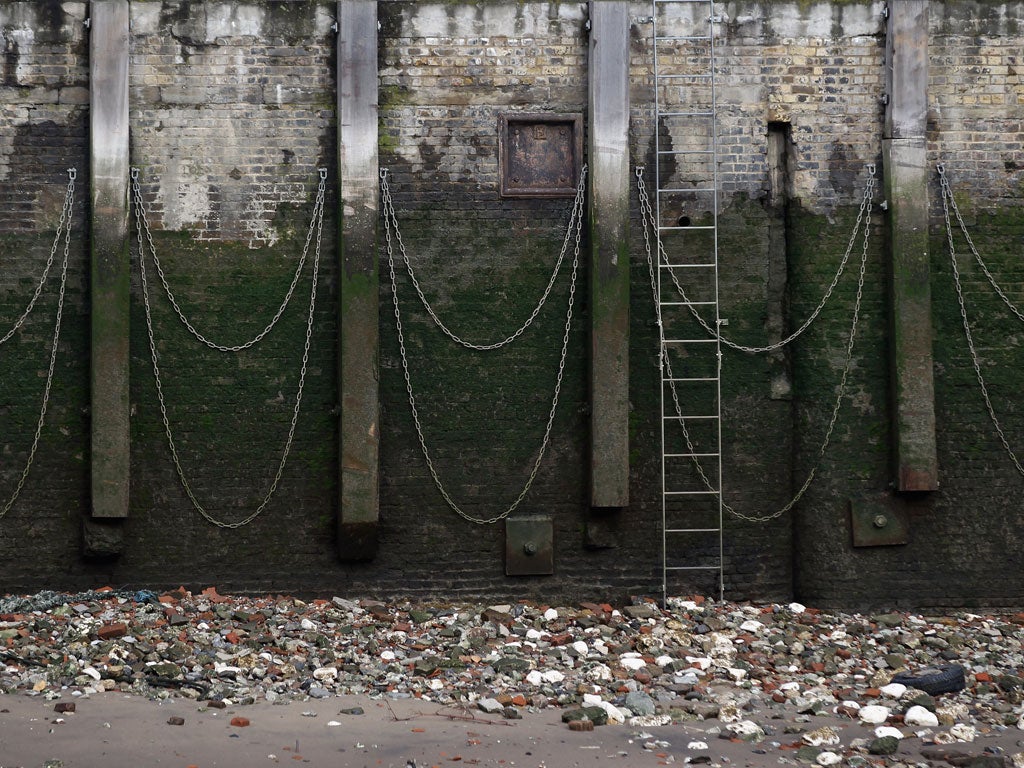Water levels in 250 stretches of river are dangerously low
Officials review licensing system that allows farmers and businesses to abstract supplies

Your support helps us to tell the story
From reproductive rights to climate change to Big Tech, The Independent is on the ground when the story is developing. Whether it's investigating the financials of Elon Musk's pro-Trump PAC or producing our latest documentary, 'The A Word', which shines a light on the American women fighting for reproductive rights, we know how important it is to parse out the facts from the messaging.
At such a critical moment in US history, we need reporters on the ground. Your donation allows us to keep sending journalists to speak to both sides of the story.
The Independent is trusted by Americans across the entire political spectrum. And unlike many other quality news outlets, we choose not to lock Americans out of our reporting and analysis with paywalls. We believe quality journalism should be available to everyone, paid for by those who can afford it.
Your support makes all the difference.Nearly 250 stretches of Britain's most important rivers are at risk of drought because too much water is being taken out of them. The Environment Agency has revealed that parts of inland waterways in England and Wales are on the danger list with spring barely begun because of "abstraction pressures".
The list, which includes the Thames, Severn, Humber and Wear, emerged only days after Caroline Spelman, the Environment Secretary, declared that the South-east was officially in drought. Millions of households now face restrictions, including hosepipe bans.
The Government's list of rivers at risk is causing deep concern in Whitehall and among farmers, environmentalists and anglers. The greatest worry is licensed water for businesses. More than 21,000 licences allow farmers, water companies and other users to "abstract" water to maintain their business.
The Department of Environment, Food and Rural Affairs has begun reviewing licences that it fears are damaging the ecology of rivers, amid warnings that climate change and population growth could leave many up to 80 per cent lower in summer over the next 40 years. However, only 82 licenses have been changed or revoked – eight of them compulsorily.
Ministers, who discussed the crisis with angling groups in Westminster earlier this month, plan to establish a new licensing system that would tackle the abuse of rivers that are "dangerously low or even running dry". But environmental campaigners have complained that they are not doing enough to tackle the long-term causes of the crisis.
Paul de Zylva of Friends of the Earth said: "Leaky old water pipes and over-abstraction from rivers, combined with unusually low rainfall this winter, is a dangerous – and expensive – concoction.
"Ministers keep holding water summits, but if they are serious about safeguarding supplies and protecting crops and wildlife, they must urgently stop water companies drying out our rivers and place water saving at the heart of our planning system."
Farmers' leaders last week called for more action from government to tackle the problem – but also claimed agriculture should be allowed to take water for longer. Gwyn Jones, vice-president of the National Farmers Union, said: "Only when we tackle the long-term issue of water management and work together will we be able to properly manage this most precious natural resource."
Harry Cotterell, president of the Country Land & Business Association representing landowners and businesses in rural areas, said: "Other sectors have priority over agriculture, but to ensure food and environmental security, it is vital that we are given our fair share of water."
A report from WWF, the conservation charity, in 2010 warned that river ecosystems were being increasingly threatened because of over-abstraction by water companies. The group blamed out-of-date licences, and called on the Environment Agency to revoke the most damaging ones by 2020.
Richard Benyon, the Agriculture Minister, said a white paper would introduce "new and clear rules" on abstraction "that will work and be sustainable in every sense".
He added: "There are urgent measures that we need to take forward, because in constituencies similar to mine, much-loved and much-valued rivers, which are vital to our eco-systems and to the general health of our environment and to the way in which we value it, are running dry."
But the shadow Environment Secretary, Mary Creagh, called for swift action: "The proposals on the removal of historical abstraction licences, which cause such damage to our environment, are given an end date of 2025, which is far too late."
Join our commenting forum
Join thought-provoking conversations, follow other Independent readers and see their replies
Comments